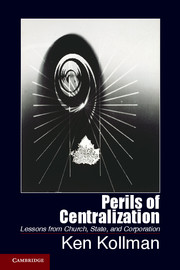7 - The Elusive Balance
Published online by Cambridge University Press: 05 June 2014
Summary
The previous four chapters recounted historical episodes from some of the world’s most important federated institutions. The U.S. case is Exhibit A, a familiar example based on the overall design of its governing institutions. The well-known design features spring from the tenets of federation and separation of powers. Along with these design features is the well-established historical pattern of a strengthened presidency over time with increasing authority lodged in the executive branch. That increasing authority to the executive, combined with partisanship linked to capturing the presidency, are key to understanding how centralization to the national level and away from the subunits becomes locked-in. The subunit governments and representatives over time have had less and less say in two kinds of decisions: what policies will be decided at the national level versus the state level, and if they are decided at the national level, what those policies will be.
There are historical wrinkles having to do with subunits and their representation in the U.S. trajectory. The U.S. federation began with a Senate comprised of people appointed by state governments. Until the early twentieth century, this meant there was direct representation of state governments in one chamber in what was intended to be the most powerful branch (legislative) of that national government. This direct representation by state governments did not survive the Progressive Era. Owing largely to fatigue and exasperation at corruption in the awarding of those seats, through reform movements backed by popular demand, senators by 1917 became elected by popular vote in every state.
- Type
- Chapter
- Information
- Perils of CentralizationLessons from Church, State, and Corporation, pp. 150 - 172Publisher: Cambridge University PressPrint publication year: 2013



